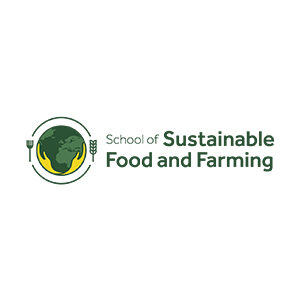
School of Sustainable Food and Farming
The School of Sustainable Food and Farming at Harper Adams University is supported by our steering partners: Morrisons, McDonalds UK & Ireland, and National Farmers Union. Our shared purpose is to;
- Equip farmers with skills and knowledge towards Net Zero within sustainability parameters (economic, environmental and social).
- Talk a common language with regards to Net Zero and sustainable farming.
- Improving farm data to track carbon emission reductions and sequestration offsetting at a whole farm system approach.
- Encourage new entrants into the food industry and a diversity of entrepreneurial people.
- Provide a trusted source of information for sustainable agri-food supply systems.
To realise this, we have created four delivery pillars.
PILLAR 1 – New Talent
We can’t expect anything to change if we always do the same. So this pillar is focusing on Iundergraduate curriculum development, student industry placements, and projects aimed at attracting new and diverse talent into food and farming.
PILLAR 2 – Upskill Current Workforce
Much of the agri-food workforce gets its learning by learning from each other. But we can’t assume that’s being done correctly, or even at all. Our second pillar is educating and sharing insight for farmers and food producers via virtual and in person learning.
PILLAR 3 – Research
How can we expect to make change without interrogating everything we think we know? Our third pillar enables us to work collaboratively to find the solutions to key industry challenges through academia and the latest technology, using exemplar farms to showcase Net Zero transition.
PILLAR 4 – Influence
We’re not lobbyists. But we are a significant voice around the agri-food table. We’re using our influence and our voice to work collaboratively to speak a common language and support industry and policy development.
Get involved: FarmToNetZero.co.uk
Register for our fully-funded Future Farmer Programme
REPORT: Discover what you people think about agri-food careers
Habitats – biodiversity study aims to impact on-farm sustainability
